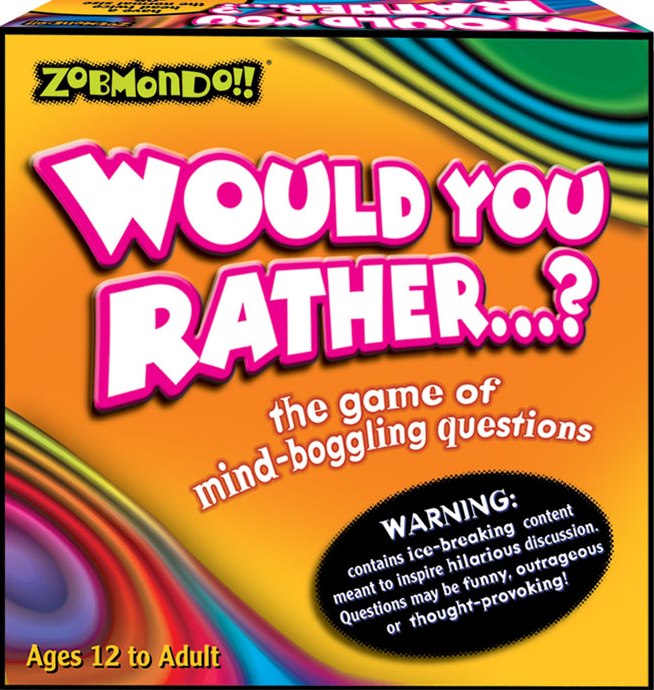Ninth Circuit Finds "Would You Rather?" Not Descriptive as a Matter of Law
 Plaintiff Zobmondo’s WOULD YOU RATHER …? trademark
Plaintiff Zobmondo’s WOULD YOU RATHER …? trademark
By the time of suit, both plaintiff and defendant had sold millions of dollars worth of competing books and board games under similar WOULD YOU RATHER? trademarks.
In 2006, plaintiff Zobmondo Entertainment, LLC, sued Falls Media, LLC, in the Central District of California for trade dress infringement. Thereafter, Falls Media sued Zobmondo in the Southern District of New York for infringement of its registered trademark. Zobmondo counterclaimed for cancellation of Falls Media’s registration. The cases were then consolidated in the Central District of California.
On cross-motions for summary judgment, the court found Falls Media’s mark was merely descriptive and that no rational juror would conclude that it had established secondary meaning. Therefore, it granted Zobmondo’s motion on the ground that Falls Media’s mark was not protectable.
Falls Media appealed.
The Ninth Circuit found the district court’s decision was wrong under the circuit’s “imagination test.”
“We cannot look the entire mark up in a dictionary; there is no literal meaning of the ‘WOULD YOU RATHER … ?’ phrase, given that the words precede an ellipse; one may infer that there is a question, but only imagination can tell us that the question will serve up a bizarre or humorous choice. On the one hand, consumers who already understand the phrase ‘WOULD YOU RATHER … ?’ to refer specifically to a game of questions involving bizarre or humorous choices might not consider the mark very suggestive as the name of a board game, but to consumers who do not share such an understanding, ‘WOULD YOU RATHER … ?’ is simply the first three words of an open-ended question. For those consumers, the mark ‘WOULD YOU RATHER … ?’ may not ‘describe’ anything, except that a question is asked, and may indeed require imagination and multistage reasoning to understand the mark’s relationship to the game to which it is affixed. Given the record before us, which lacks comprehensive consumer surveys, we cannot say with confidence precisely what consumers will understand the phrase ‘WOULD YOU RATHER … ?’ to mean, nor are we confident that our own understanding of the phrase is an adequate substitute.”
The court also found that Falls Media’s federal registration accorded it a “strong presumption” that its mark is inherently distinctive.
Therefore, the court remanded the case for trial.
Zobmondo Entertainment, LLC v. Falls Media, LLC, __ F.3d. __, 2010 WL 1644256, No. 08-56831 (9th Cir. April 26, 2010).
Reader Comments